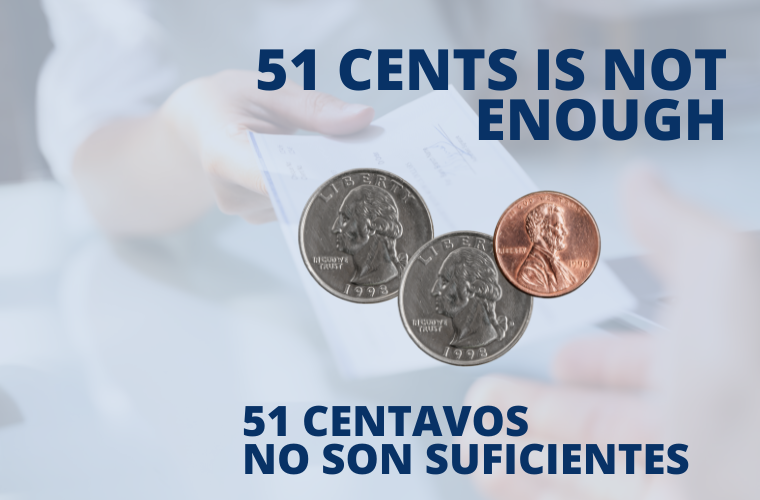
The New Roaring 20s
I’m not talking about the 1920s. I’m talking about 2020, and the years after that. No flapper girls, no champagne flutes (well, maybe), but people of all genders and races roaring to be heard.
The 1920s were unique and pivotal. Some women (i.e., white women) had just won the right to vote, attitudes about the roles of women began to change with more women taking traditionally male jobs in the wake of WWI–it was a time of transformation.
Now that we’re 2 months out from 2020, I can’t help but wonder what this next decade of roaring 20s has in store for our nation. If that roar is anything like the past 2 years, it’s going to sound a lot like the voices of womxn and revolution.
In the past 2 years, we have seen a large influx of bills at the state level that focus on women’s physical and economic security–from combating sexual assault and harassment in the workplace to expanding anti-discrimination policies for protected classes of workers.
This progress can largely be attributed to the #MeToo movement and the roads it has paved for activism and holding those in power accountable. But what we have seen is only the beginning– and not just for sexual harassment related bills, but for equal pay bills, too. Because if there is one major take away since #MeToo went viral, it’s that sexual harassment and equal pay are not independent of each other and are more often than not connected because of power imbalances and sexism. Take a look at the restaurant industry, where workers who are paid $2.13 an hour must rely on their tips to make ends meet, and will often endure dangerous levels of harassment because refusal could mean upsetting a customer and not getting paid, or getting fired. Unsurprisingly, the most harmed victims are women of color and low-paid workers, for whom these imbalances are even more pronounced.
Because if there is one major take away since #MeToo went viral, it’s that sexual harassment and equal pay are not independent of each other and are more often than not connected because of power imbalances and sexism.
So what does this all have to do with the “roaring ‘20s?” Well, what we’ve heard since #MeToo is a battle cry, and now we are entering into a full-fledged run–straight at corporate employers, the Equal Employment Opportunity Commission (EEOC), and the White House. We have seen the introduction of the BeHEARD act, the FAIR Act, and the Paycheck Fairness Act–comprehensive federal bills working to close loopholes and create stronger protections for working women.
But more notably, we’ve seen states taking a bigger aim at their own laws and companies.
Approximately 245 equal pay and sexual harassment bills were introduced in 2019, and when comparing that number to the same kind of bills from 2018, that’s a 33% increase. A. 8421 in New York, SB 1300 in California, and HB 834 in Illinois were all signed into law in the the last two years, expanding and creating major protections for survivors of sexual harassment and victims of pay discrimination. And not to be forgotten, we are celebrating the less-extensive bills that have passed that will also affect discriminatory and dangerous employer practices such as SB 6313 in Washington, which makes an employee contract void and unenforceable if it requires that an employee waive their right to make sexual harassment or assault claims; or HB 225 in Alabama, a pay equity bill that signifies an important first step in that state.
From 2017-2019, over 460 state bills have been introduced-- all addressing sexual harassment or equal pay in the workplace. These upticks are cropping up across the board--legislators are taking a harder look at their state laws, and their constituents are holding them accountable.
And just as importantly, if not more, we’re looking at bills that were introduced, but not ultimately passed or enacted, like HB 311 in New Mexico, which would have mandated state employees to take harassment-prevention training, HB 211 in New Hampshire, which would have prevented employers from asking candidates about their prior salary, and SB 866 in Florida, which would have combated workplace sexual harassment and assault.
From 2017-2019, over 460 state bills have been introduced— all addressing sexual harassment or equal pay in the workplace. These upticks are cropping up across the board– legislators are taking a harder look at their state laws, and their constituents are holding them accountable. We have activists, advocates, lawyers, and the rest of the general population who have pushed for these reforms to thank.
The national conversations about equity in the workplace are evidence of a movement at its early stages, with major transformation ahead. 2020 will be a pivotal year, just as 1920 was 100 years ago. I believe that 2020 will go down in history as a year where we showed that we are not done, we are not going anywhere, and we will continue the fight to close the gender wage gap and ensure that women can go to work without being harassed and threatened.
Stay Connected & Take Action
- Get the Latest News & Information Sign up for Email Updates
- Sign Up for Action Alerts Join the Action Team
- Follow Us


